
Hair loss can be a distressing condition that affects men and women of all ages. It can be caused by a variety of factors, including genetics, medical conditions, and certain medications.
While it is normal to lose some hair each day, excessive hair loss can indicate an underlying health issue and may require treatment.
One of the most common treatments for hair loss is medication. Minoxidil and DHT Blockers and Vitamins are medications that are commonly used to treat male pattern baldness.
However, it is important to note that these medications may not be effective for everyone, and the results may vary.
Hair transplant surgery is another option for people with severe hair loss. This procedure involves removing hair from one part of the scalp and transplanting it to the thinning or bald areas.
There are several advanced hair transplant techniques, including FUT and FUE. Hair transplant surgery can be an effective treatment for hair loss, it is a minor superficial procedure and requires a minimum amount of recovery time.

In some cases, making lifestyle changes might also help to control hair loss.
Consuming a nutritious diet full of minerals like protein, iron, and vitamins A and C can support healthy hair development.
Your hair can be protected by avoiding tight haircuts and using mild hair care products. Stress management and general health maintenance can help promote healthy hair growth.
There are several different types of hair loss that can occur, and each type has its own unique set of causes and characteristics.
Here are Five Common Types of Hair Loss :
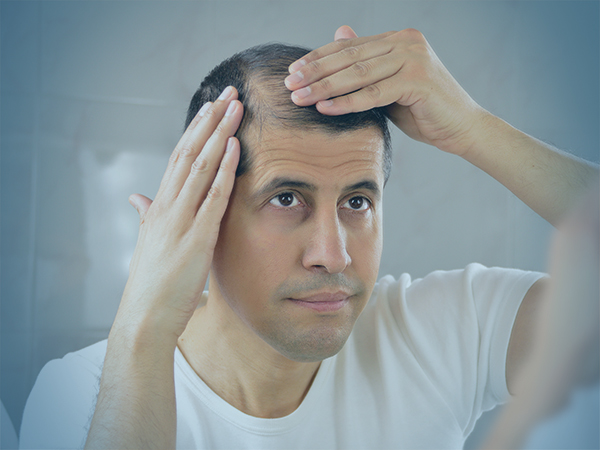
This is the most common type of hair loss, also known as male or female pattern baldness. It is caused by a combination of genetics and hormones and typically affects the crown and frontal hairline in men and the central part of the scalp in women.
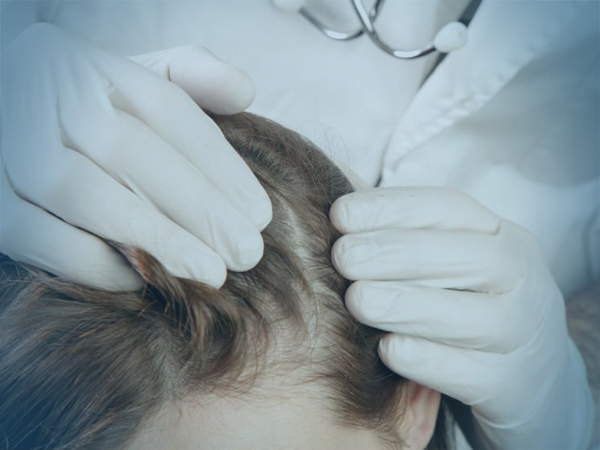
This type of hair loss is usually temporary and occurs when the hair growth cycle is disrupted, resulting in a larger-than-normal percentage of hair entering the resting phase (telogen) at the same time. This can be caused by physical or emotional stress, hormonal changes, certain medications, or malnutrition.

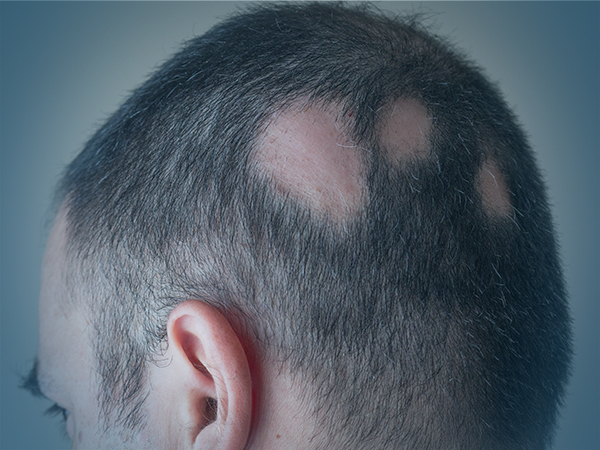
This is an autoimmune disorder that causes hair loss on the scalp and elsewhere on the body. It occurs when the immune system mistakenly attacks healthy hair follicles, causing them to go into a dormant state.
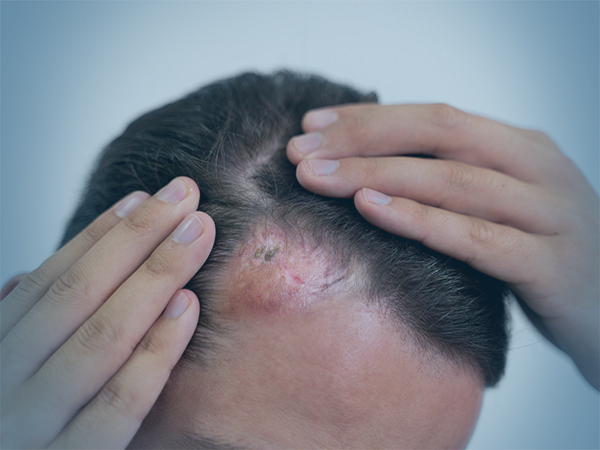
This type of hair loss is characterised by scarring on the scalp, which can cause permanent hair loss. It can be caused by a variety of factors, including inflammatory disorders, burns, and certain types of infections. Treatment may involve medications to reduce inflammation and/or surgery to remove scar tissue.

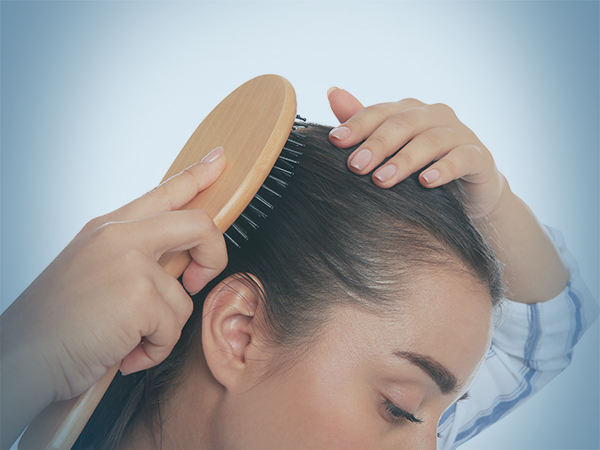
This type of hair loss is caused by tight hairstyles that pull on the hair and damage the hair follicles. It is often seen in people who wear tight ponytails, cornrows, or braids on a regular basis.
It's important to note that hair loss can have multiple causes, and it's always a good idea to consult a healthcare professional for an accurate diagnosis and appropriate treatment plan.
In some cases, hair loss may be a sign of a more serious underlying condition, such as an autoimmune disorder or nutritional deficiency, so it's important to get a proper evaluation.
Hair loss can be caused by a variety of factors. Here are some common causes of hair loss :
Hair loss can be inherited from either parent and can be passed down through either the mother's or father's genes. This type of hair loss, called androgenetic alopecia, is the most common cause of hair loss and is a gradual process that occurs over a long period of time.
Hormonal changes that occur during pregnancy, menopause, and thyroid problems can cause hair loss.
Certain medical conditions, such as iron deficiency anemia, can cause hair loss.
Hair loss can occur as a side effect of some drugs, including those for cancer, arthritis, depression, and heart issues.
Physical or emotional stress, such as surgery, severe illness, or a significant life change, can cause hair loss.
Tight hairstyles, such as ponytails and cornrows, can cause hair loss by pulling on the hair and damaging the hair follicles.
As we age, our hair naturally becomes thinner and more prone to falling out.
Poor nutrition, such as a deficiency in certain nutrients like protein, can cause hair loss.
Hair loss can have a variety of symptoms, depending on the cause. Here are some common symptoms of hair loss :
This is a common type of hair loss called male or female pattern baldness and is caused by genetics.
In men, this type of hair loss usually starts with a receding hairline and progresses to a bald spot on the top of the head. In women, the hair becomes thinner all over the head.
This type of hair loss is called alopecia areata and is an autoimmune disorder that causes hair to fall out in small, round patches. The patches may be itchy and painful, and the hair may grow back after a few months or a few years.
Sudden, significant hair loss can be a sign of a medical condition or a reaction to a medication. This type of hair loss may also be accompanied by other symptoms, such as fatigue, weight loss, or changes in appetite.
This can be a sign of a medical condition or a reaction to a medication.
This can be a sign of a scalp condition, such as dandruff or seborrheic dermatitis, which can cause hair loss.
This can be a sign of a deficiency in nutrients, such as protein or iron, or it can be caused by using harsh hair care products or heat styling.
There are many treatment options available for baldness. The most appropriate treatment will depend on the cause of the hair loss. Here are some common treatments for hair loss.

There are several medications that can be used to treat hair loss. Minoxidil, a topical solution, is approved by the FDA to treat male and female pattern baldness. Finasteride, a prescription oral medication, is approved to treat male pattern baldness. These medications may not work for everyone and may take several months to show results.
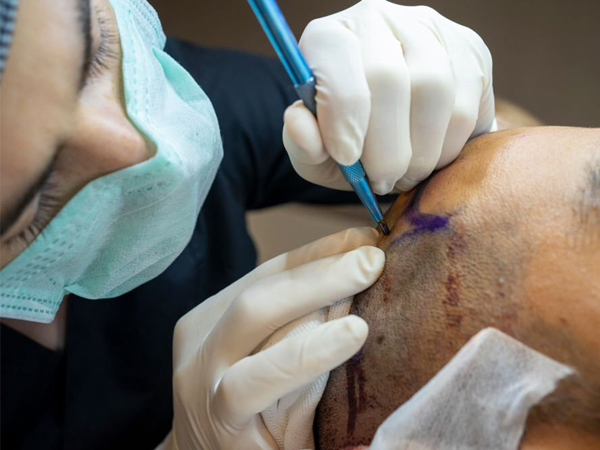
A hair transplant is a surgical procedure in which hair is taken from a donor area, such as the back of the head, and transplanted to a bald or thinning area. There are two types of hair transplants: follicular unit transplantation (FUT), which involves removing a strip of skin from the donor area and transplanting the hair follicles, and follicular unit extraction (FUE), which involves removing individual hair follicles from the donor area. Hair transplants are typically permanent and can produce natural-looking results.


PRP, or platelet-rich plasma, is a non-surgical treatment option for hair loss and thinning hair that uses the patient's own blood to stimulate hair growth. The treatment involves drawing a small amount of the patient's blood, separating the platelets from the other blood cells, and then injecting the concentrated platelets back into the scalp.